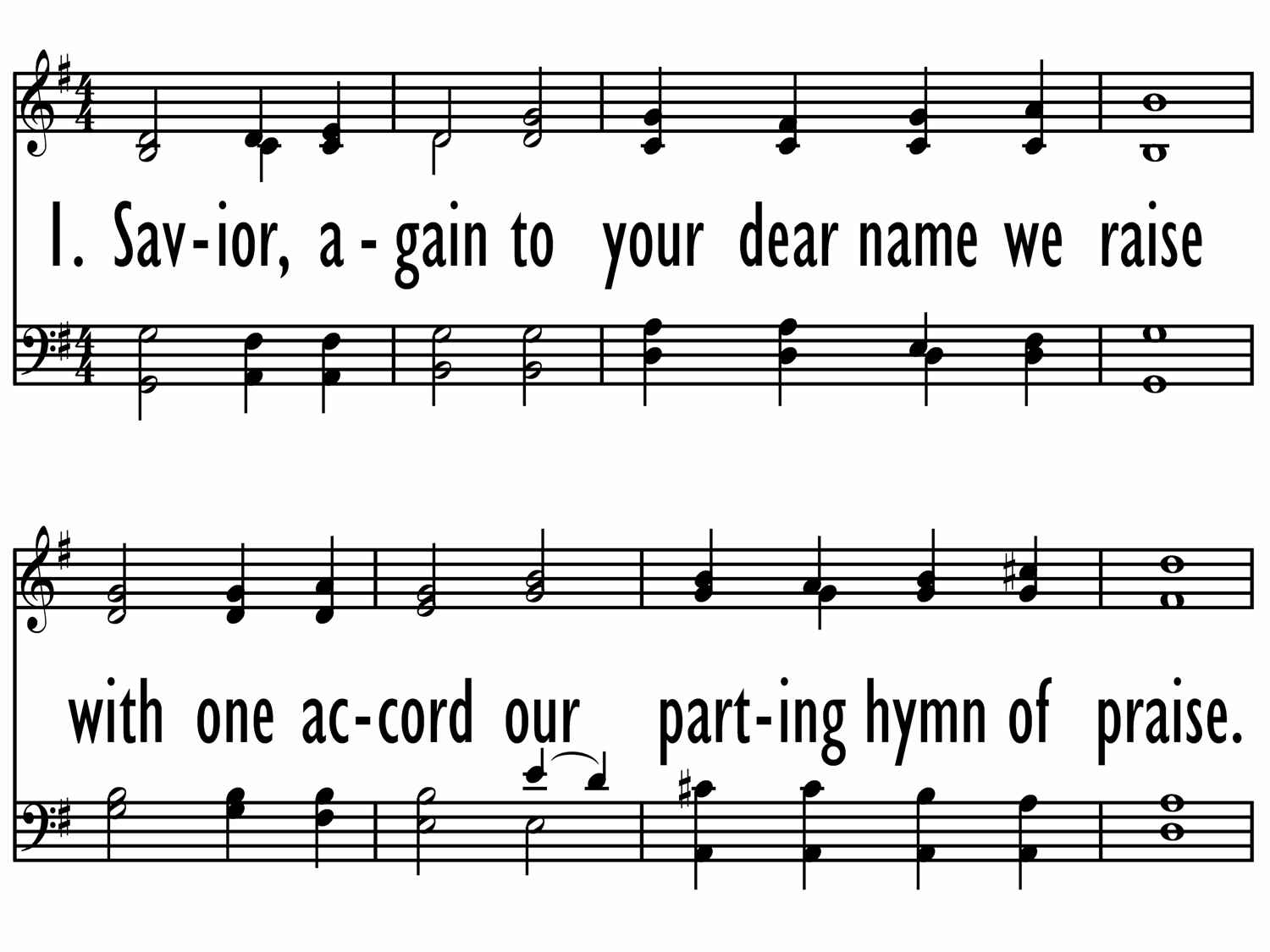- |
User Links
Savior, Again to Your Dear Name We Raise
Hymn Information
- First Line
- Savior, again to your dear name we raise
- Author
- John Ellerton (1866, alt.)
- Tune Name
- ELLERS
- Composer
- Edward J. Hopkins (1869)
- Topic
- Daily Prayer: Evening · Jesus Christ: Peace · New Heaven and Earth · Responses: To Benediction · Rest · Elements of Worship: Charge and Blessing
Copyright Information
- Text Copyright
- Public Domain
- Tune Copyright
- Public Domain
- Reprint/Projection Information
- Words and Music: The Words and Music are in the Public Domain; you do not need permission to project or reprint the Words and Music.
Full Text
Scripture References
Confessions and Statements of Faith References
Further Reflections on Confessions and Statements of Faith References
To leave the security of worship and enter the world for service requires firm confidence in the faithful promises of God to be with us, to care for us and bless us. Our deepest assurance comes from the comfort we have that “I am not my own, but belong—body and soul, in life and in death—to my faithful Savior Jesus Christ” (Heidelberg Catechism, Lord’s Day 1, Question and Answer 1). Because I belong to him, “he will provide whatever I need for body and soul, and will turn to my good whatever adversity he sends upon me in this sad world. God is able to do this because he is almighty God and desires to do this because he is a faithful Father” (Heidelberg Catechism, Lord’s Day 9, Question and Answer 26). We have the assurance that “our Lord speaks to us now through the inspired Scriptures. Christ is with us day by day” (Our Song of Hope, Stanza 1). How rich it is to carry such assurance of his blessing with us as we leave the service of worship!
Savior, Again to Your Dear Name We Raise
Additional Prayers
Now we pray for your peace as well.
Grant us your peace.
Grant us your peace, now and forever. Amen.
Savior, Again to Your Dear Name We Raise
Tune Information
- Name
- ELLERS
- Key
- G Major
- Meter
- 10.10.10.10


 My Starred Hymns
My Starred Hymns






